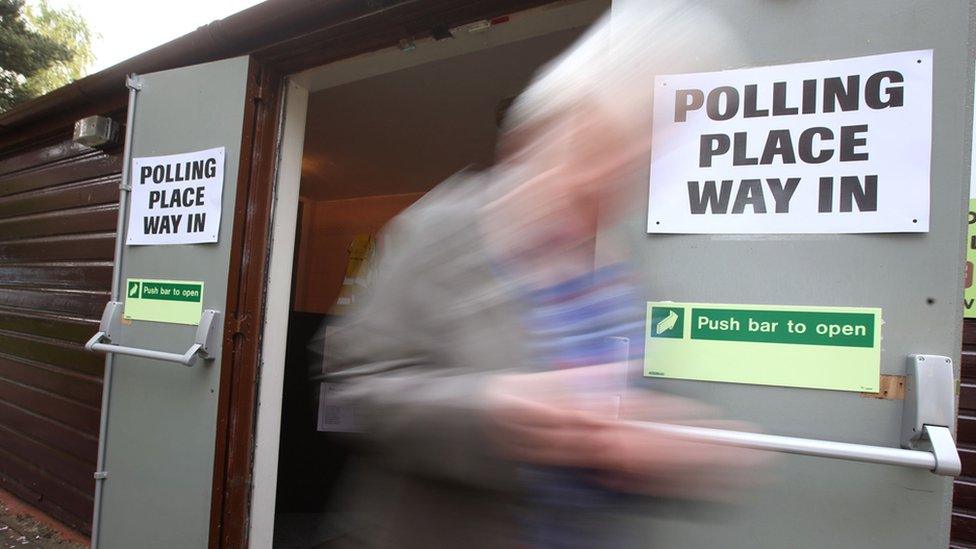Local elections 2017: What should Labour do now?
- Published
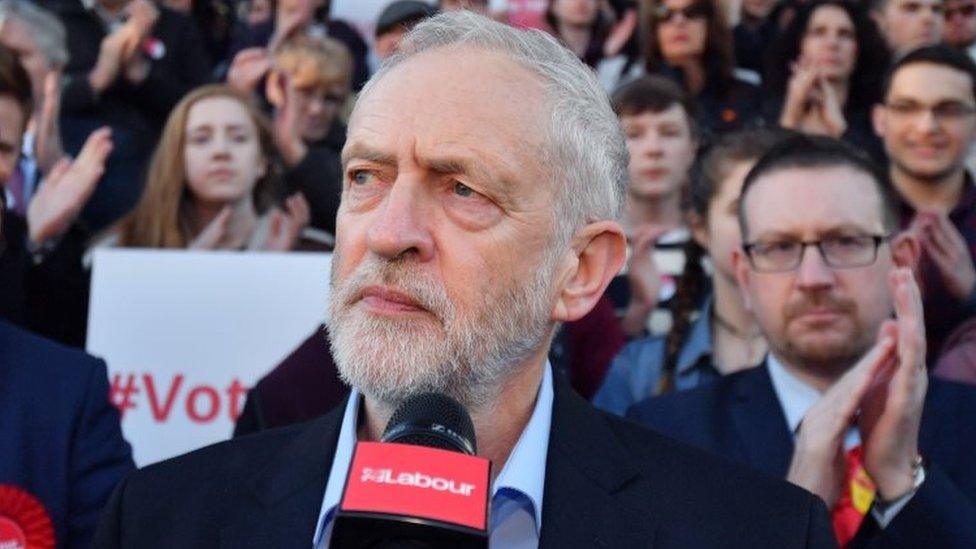
The local elections may not be an exact guide to the general election result but for Labour politicians they have provided either proof of an electoral defeat foretold or an opportunity to mitigate it.
For some of Jeremy Corbyn's opponents, Friday's results suggest that the opinion polls are broadly right and the best approach towards self-preservation in the next month or so, as a general election approaches, is to keep what they hope will be a safe distance from the party leader.
As one former minister put it "I don't want him anywhere near my seat - they should continue to send him to places we won't win".
A senior Labour figure described the party's local election performance as "calamitous".
So much so that some of Mr Corbyn's supporters fear another attempted putsch by his internal opponents.
That doesn't seem likely, though.
John Curtice: Six key lessons for the general election
That's because many of those who are sceptical about his leadership say there is no obvious mechanism to remove him - and he would use any evidence of a plot to excuse a bad general election result.
Time and again the phrase they use is that those around Jeremy Corbyn must "own" any defeat.
The former Labour group leader in Derbyshire, Dave Wilcox, saw control of his council pass to the Conservatives today.
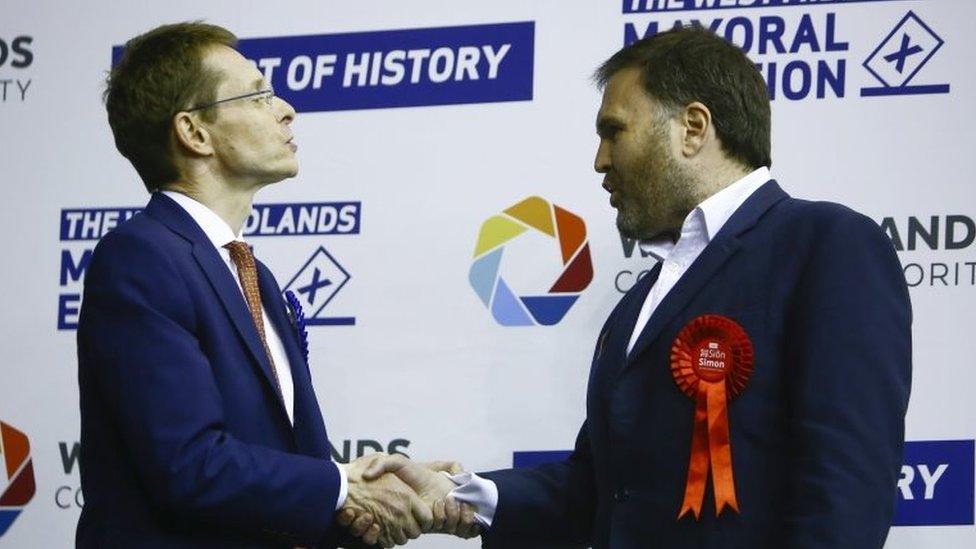
Sion Simon (right) congratulates winning Tory candidate Andy Street
He told the BBC he wouldn't be calling for Jeremy Corbyn's resignation right now - but if Labour were to suffer a similar defeat nationally on 8 June, the party leader should go.
He told me: "Genuine Labour supporters have been saying we can't vote for this bloke because he doesn't speak for me.
"We heard it time and time and time again on the doorstep. We are not voting for you while you have Jeremy Corbyn as leader."
The party's mayoral candidate in the West Midlands, Sion Simon - close to Labour deputy leader Tom Watson - chose to focus not on the party leader to explain his defeat.
Instead, he said he got "the sense that some of our voters don't have confidence any more that we share their core Labour values".
But Mr Corbyn's allies blame a collapse in the UKIP vote, as well as previous attempts by some of his own MPs to undermine him, for the poor results.

Publicly, the official line from the Labour leadership is that the council elections were disappointing, not disastrous - but privately some of Mr Corbyn's close colleagues have indeed used the word "disaster" to describe the results.
There won't be any wholesale change to their strategy now but there is an unofficial four-point plan to improve the party's standing.
First, they'll redouble their efforts to get younger non-voters registered as they believe they will be more sympathetic to a radical Labour party.
Second - as shadow chancellor John McDonnell made clear in his media appearances today - they are likely to make Jeremy Corbyn more, not less prominent, in the campaign.
The shadow chancellor believes the leader's image so far has been "distorted" by a hostile press but now we are in a formal election campaign, there will be more balanced broadcast coverage.
And, crucially, there will also be more opportunities to see an "unmediated" leader in the raw - and that voters will warm to his decency.
Third, they intend to bolster doorstep campaigning.
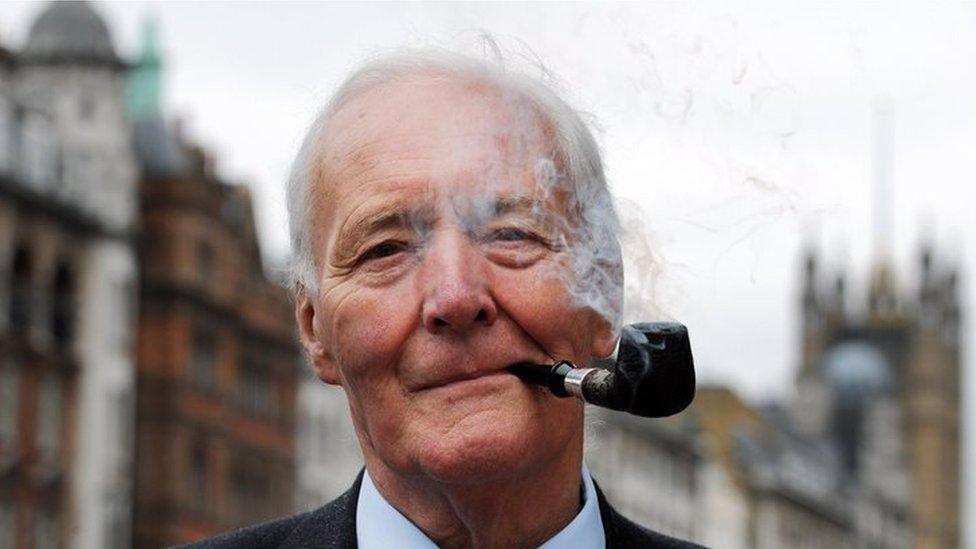
Will Labour take a leaf out of Tony Benn's book?
Jeremy Corbyn's office are keen to find out just how much of this had been carried out in areas where council results were poor.
They want more direct conversations with potential voters so their message isn't only seen through the prism of the mainstream media..
And finally, there will be a renewed emphasis on what the late Tony Benn would have referred to as "policies, not personalities".
The Labour leadership believe that when their manifesto is unveiled in 10 days time, popular policies will boost their poll ratings.
But Labour's private polling also suggested that many of the party's individual policies in 2015 were popular - and that didn't guarantee success at the ballot box.
And Labour's five million doorstep conversations with the public at the last election didn't mean that voters liked what they were hearing.
But overall the message is that the leader and his supporters must do more to play to their strengths.
To coin a phrase, there is no alternative.
- Published5 May 2017
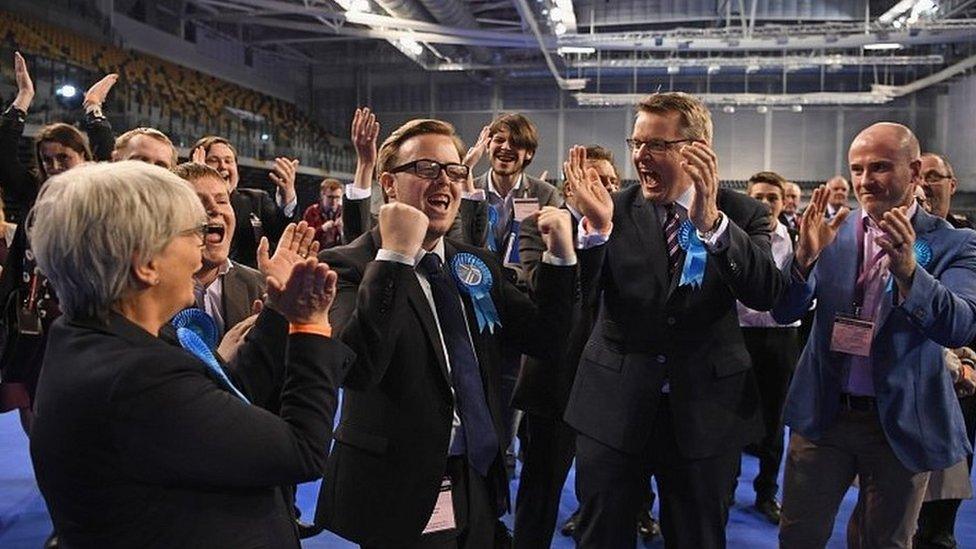
- Published5 May 2017
